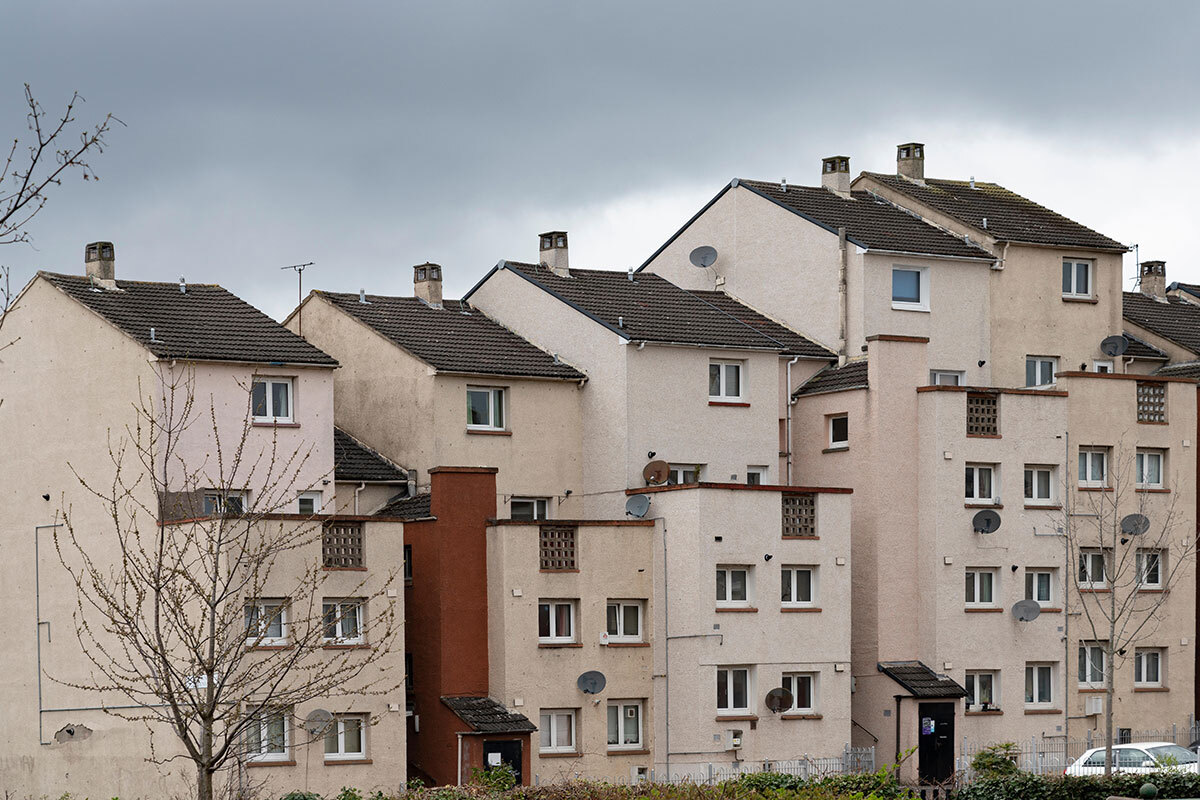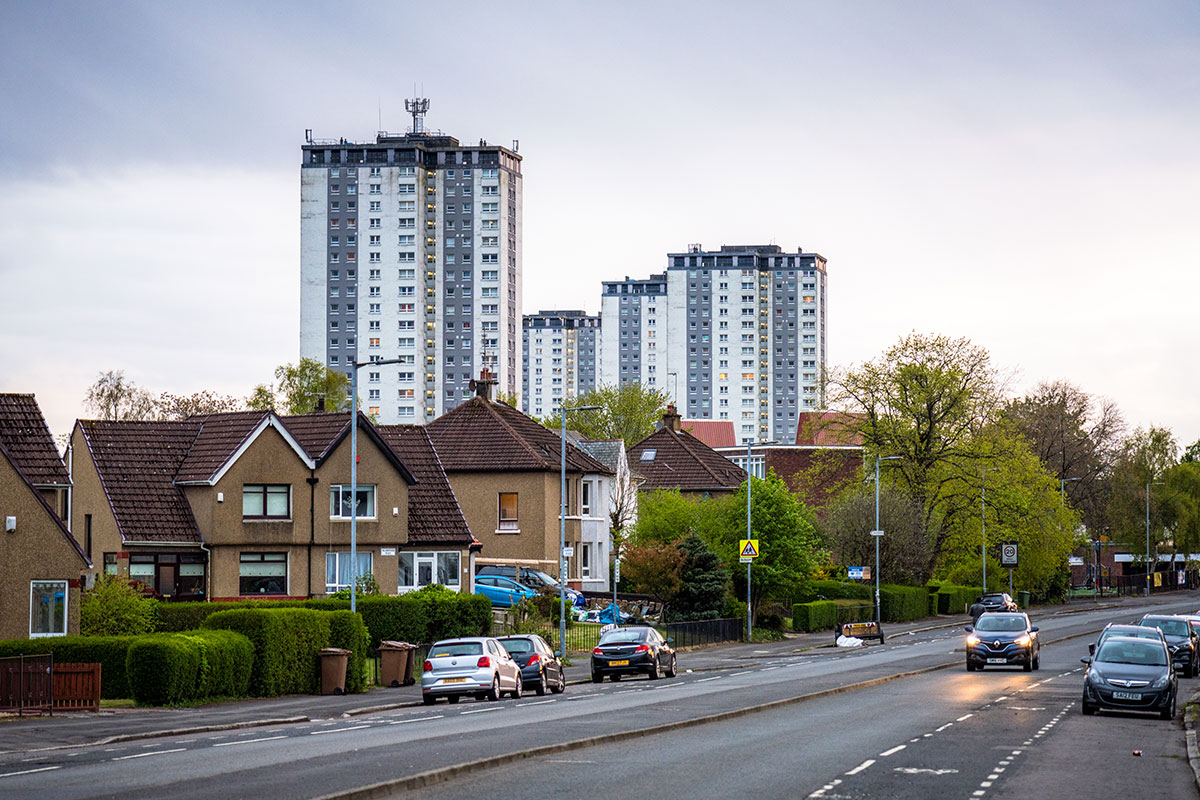Scotland’s rent freeze will lead to fewer social homes, poorer-quality housing and an end to the sector’s role as a leader on decarbonisation
The Scottish government wants to keep bills low for social tenants during a cost of living crisis. But, argues Sally Thomas, the result will be a barrage of unnecessary consequences
‘Cakeism’ – the desire to have your cake and eat it – is a word I had not previously encountered before I read Matthew Bailes’ piece in Inside Housing. But it is one I will be making use of in future. It exactly describes the situation faced by housing associations and co-operatives in Scotland, since the Scottish government announced plans to freeze social and private sector rents until at least March 2023.
The consequences of this move will be serious for the Scottish government’s own ambitions on housebuilding, energy efficiency and the standard of homes. It is a perfect example of the short-termism described in Mr Bailes’ article.
“Without government intervention, social housing rents have remained lower in Scotland than other parts of the UK”
Government control of rents is an entirely new proposition in Scotland. Until now, housing associations and co-operatives have been free to set their own rents, within the limitations set out in the Scottish Social Housing Charter.
These limitations are substantial. Social landlords must set rents and service charges in consultation with their tenants and other customers so that a balance is struck between the level of services provided, the cost of the services, and how far current and prospective tenants and service users can afford them.
Thus far, the freedom that comes with rent-setting has engendered great responsibility in the social housing sector. Which is why, without government intervention, social housing rents have remained lower in Scotland than other parts of the UK. Indeed, the greater availability of social housing is one of the key reasons poverty in Scotland remains lower than elsewhere.
We are, of course, facing a deep and sustained cost of living crisis, and it is right that politicians should look for ways of helping people at this time. And we know that housing associations will be key partners in tackling the current crisis. While freezing rents may seem like an obvious solution, there is a real danger that this blunt tool may end up shattering the structures that exist to support tenants.
We cannot forget that in Scotland, rents in the social sector are already half the level charged in the private sector, precisely because our members take so seriously the responsibility of keeping rents low while maintaining quality.
“The impact will be massively reduced ability to invest in maintaining existing properties, which will lead to a drop in the quality of tenants’ homes”
I met the cabinet secretary for social justice, housing and local government less than an hour before first minister Nicola Sturgeon stood up in the Scottish Parliament to deliver the Programme for Government.
The message I sought to convey is the same one we are now putting to politicians across the party spectrum: a rent freeze in the social sector will jeopardise the Scottish government’s targets both on affordable housebuilding and energy efficiency, as well as reduce the sector’s ability to maintain existing stock to the standards required.
We must learn the lessons from elsewhere, where government intervention in rent has led to a raft of unintended consequences for both tenants and social landlords.
In Scotland, the Right to Buy was abolished in 2014, which has protected our stock of social housing. Nevertheless, there remains an urgent need for more good-quality, affordable rented housing. The Scottish Federation of Housing Associations’ joint research with the Charted Institute of Housing Scotland and Shelter Scotland found that at least 53,000 new affordable homes are needed by 2026, which will require an investment of at least £3.4bn.
The Scottish government has not shied away from this challenge, setting a target of 100,000 new homes by 2032 after the election last year. It then upped the target to 110,000 when the Scottish National Party and Scottish Greens reached their partnership agreement in 2021. This has all been hugely welcome, and we have been glad to work in partnership with Scottish government on this. We hope we can continue to do so.
In the days after the announcement, I hosted a meeting with more than a hundred of our members who had made themselves available at very short notice to voice their alarm and concerns. They were clear that if they are required to freeze rents without additional financial support, the impact will be:
- Massively reduced ability to invest in maintaining existing properties, which will lead to a drop in the quality of tenants’ homes
- A halt to the investment that the sector has led in making homes more energy efficient, as we strive to meet ambitious Scottish government targets on climate change
- Greatly diminished ability to build new affordable homes; not least since lenders will have reduced confidence in their ability to repay debt
- For many, a reduction in their ability to provide the kind of financial, employability and energy support to tenants that is so crucial to help them through these difficult times
Housing associations and co-operatives have gone the extra mile countless times over the past few decades, creating the most energy-efficient homes in Scotland and raising the quality and availability of low-cost, affordable housing. They have achieved this through a stable, responsible approach to running their businesses for the benefit of – and in many cases in partnership with – their tenants.
They are now facing months of uncertainty, which, for businesses that are required to operate to 30-year operating plans and maintain the confidence of private lenders, is a matter of the utmost gravity.
We understand, and indeed support, the motivation to keep bills manageable. But an indiscriminate approach to the whole rented sector in Scotland will result in fewer social homes, poorer-quality housing and an end to the sector’s role as a leader on decarbonisation. We do not believe this is what the Scottish government wants, and we will work tirelessly alongside our members to prevent these unnecessary consequences.
Sally Thomas, chief executive, Scottish Federation of Housing Associations
Sign up for our Scotland newsletter
Already have an account? Click here to manage your newsletters
Sign up to the Tenant and Resident Engagement Conference
Join us at this leading one-day event designed to help landlords and tenants achieve meaningful engagement following the Social Housing White Paper sector reforms, covering culture change, co-production and how to engage tenants on climate change, building safety, disrepair and more.
There is a free tenant place for every delegate pass booked by a landlord.
To view the agenda and book your delegate pass, click here.














